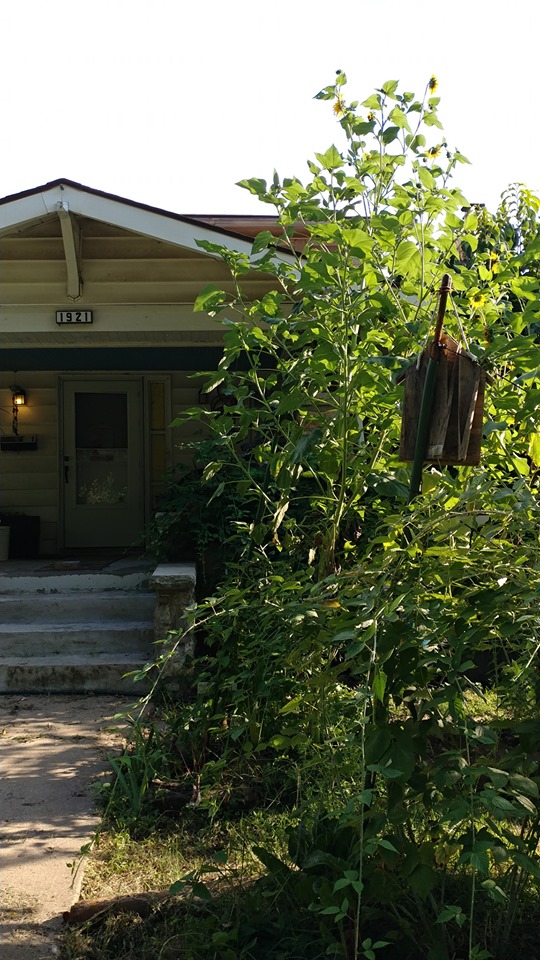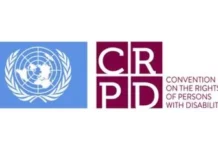The Robert Wood Johnson Foundation, one of leading national healthcare foundations or “health foundations,” as the genre tends to prefer to be called, asserts that building grassroots advocacy is the key to making progress on trauma-informed care.
More and more data are echoing this. Yet we grassroots advocates are not included.
Community organizers are said to be pivotal in making progress on health equity. Global sources say that empowering advocates is the key to making progress on behavioral health worldwide. The Recovery Movement is said to be the source of much behavioral-health innovation. Studies show that patient engagement is the key to improving healthcare outcomes and reducing the overall cost of healthcare.

Still we are not included. Healthcare foundations continue to minimize advocates’ role and to damage advocates and our organizations every day. Here is how healthcare foundations damage us, and what they need to do if we are ever to make real progress:
1. Healthcare foundations are picking favorites instead of picking the most qualified for funding. It’s time to start looking at the Power Moves toolkit and learning how to make inclusive, community-engaging RFPs and decisions. If you look at Grant Advisor for foundations that have reviews, almost everyone is accused of choosing insiders. In the most egregious case I experienced, a funder said their project needed a well-honed machine for training advocates and a multisectoral team from around the community. The funders chose an agency that had only five sectors and trained zero advocates. Our team brought in all 16 sectors and had trained more than 240 grassroots advocates with proven outcomes, proven methodology, and proven impact, and guess which project got funded? And this funder even passed out materials ahead recognizing that advocates were the No. 1 difference for making change on this issue.
2. Healthcare foundations are funding nonprofits instead of people. “People” means individuals; a person, not an agency. Look into Asset-Based Community Development to understand why this matters and how to do it. Hint: a pass-through grant from one agency to another is still funding agencies, not people.
3. Healthcare foundations minimize our role. Start saying this line with your mouth: “Advocates are the key to progress.” Start saying this line with your marketing materials: “Advocates are essential.” Better yet, start saying it with your pocketbook. Healthcare foundations need to feature advocates at the pre-proposal conference, during the selection process, during anything you do publicly in our community. Hint: If you can’t tell the difference between a healthcare provider and a consumer advocate, you might need to start hanging out in a few more places.
4. Healthcare foundations spend a disproportionate amount on funding providers. Examine your advocacy portfolio. What percentage is spent on advocates who protect consumer outcomes and what percentage is spent on “money begging for providers?” Um, providers can beg for their own money. But who is looking out for the consumers or patients who can’t afford to show up at health-policy meetings?
5. Healthcare foundations are ignoring medical harm. Acknowledge that all medical care causes both benefit and harm. Start finding advocates who are talking about the overuse of medication as well as those talking about underuse.

6. Healthcare foundations are neglecting community engagement. Stop preaching it and start doing it. If “community engagement is a cornerstone” of a healthcare foundation, how can you then host three behavioral-health conferences in one year without once including behavioral health advocates in conference planning? Start talking to the affected community BEFORE you do an event focused on that community. (By the way, just as there is an academic body of literature on “how to do each type of healthcare intervention,” there is also an academic body of literature on “how to do community engagement.” Try dipping your toe into that information.)
7. Healthcare foundations are making it difficult for the grassroots to compete. Stop requiring us to be 10 times better than other applicants in order to be considered. Advocate organizations are competing against provider organizations that have had piles of resources for years. This advantage is what I call “provider privilege.” Start offering set-aside funds for recovery movement groups and patient-advocates, as the Health Foundation of South Florida has. If we are the key to progress (and you said so in your pre-conference materials!) how about supporting our role as such? Recognize that our agencies have been fighting from an oppressed standpoint for years and don’t judge us for not having the same resources that the privileged people do.

8. Healthcare foundations insist that we collaborate with our enemies. Don’t judge us on our ability to “get along” with people who are deliberately discriminating against and excluding us. Don’t throw away most of our 47 national, regional, and grassroots commitment letters because their authors aren’t your buddies. Don’t give preference to your buddies who turn in 29 vague, repetitive, non-committal letters that then get accepted. Start looking at the networks we weave, the team that we bring in, and how they could affect health care. Have a precise definition of the “collaboration” that you are looking for.
9. Healthcare foundations discard innovation. Don’t reject new ideas because you don’t understand them. Start asking questions about our projects. If you don’t see how the “grant is cohesive enough,” maybe it’s because you don’t know enough about the field to understand each piece of the project we’re proposing. Start making funding interactive.
For a $300,000 project, try picking the phone up ONE time to call us during the decision- making process.
10. Healthcare foundations must have an enforcement process. Eight times I have gone to a funder when a project wasn’t going to be able to reach its stated outcomes (after trying to come to a resolution with project leaders). Eight times I have a warned a funder ahead of time that a coalition was failing to include grassroots advocates, thus failing to reach stated project goals. The most productive intervention has been that two funders have held a one-and-done meeting to “hear me out,” then did nothing. Four funders have ignored the situation, and two funders have gone aggressive and attacked me personally for being the whistleblower. If you are going to fund a coalition to represent the whole community, then be ready to hold the backbone organization accountable for actually including and representing the whole community. Hint: Most of them CAN’T because a coalition is inherently a bad way to do grassroots engagement.
11. Healthcare foundations break advocates by forcing us to work in your pretty coalitions. I am repeating this point because it’s backed up heavily by data: The coalition structure, in and of itself, damages advocates. Stop forcing us to work in sit-around-do-nothing meetings. Stop forcing us to beg people at Step 2 to come up to Step 3 when our projects have been operating at Step 10 for years. Hey, maybe take a look at funding OUR projects, not these dumb coalitions.
Healthcare Foundations: A Joint Vision of Healing
Know that each of these slights affects us. You, healthcare foundations, are killing us grassroots advocates. Your discrimination breaks our hearts. Your exclusion galls us. You make us lose hope each time you chose to ignore our pleas for better health outcomes. Many activists die by suicide.
The reality of being an advocate is this: We are living in poverty, trying to speak truth to power. We being asking to provide free help to rescue projects. We are the teachers of people who are richer than us. We are being forced to beg for incremental change from people who aren’t incentivized to care about it. They are making money off our people’s suffering. The disability industrial complex is a thing. As the saying goes, “When you are robbing Peter to pay Paul, it gets Paul’s vote every time.” And here you are supporting Paul and spitting on us for pointing out the situation.
The reality of being an advocate is this: In customer service, only 1 out of 10 customers will complain. The other nine will just leave the business and not return. Thus the one complaining customer is giving you a gift: They are speaking for the other nine customers who already left your business and you don’t know why. We are giving the gift of our advocacy. Advocates are pretty persistent, those who stick with it, but how often do you expect us to speak for others? Representation fatigue is a huge burden.
It pains us greatly to see you supporting medical harm instead of caring about the social determinants, health equity, or resilience that you say you care about. Every additional ineffective project removes more advocates from the pool of people willing to do this work.
The reality of being an advocate is also this: We are trying (with no resources) to heal from medical harm while trying to defend our methods of healing from constant criticism, while trying to help other patients heal, while trying (with no resources) to change a system that isn’t rewarded for creating healing.
Two months ago, one of my best friends, a longtime advocate, died by suicide. It showed me, more clearly than anything else, how unhappy I have been. I realized “I am going to be next if I keep doing this work.”
And the process breaks funders, too. One funder told us eight times in a one-hour meeting, “I am tired of being a funder.”
Well, I am also tired. I’ve done what I set out to do. I built a program that employs 12 staff and 74 sponsored artist/advocates. That program is the biggest funder of individual behavioral-health advocates in the central states. I brought $1.6 million in grant money to medical-harm-aware advocates in the three states where I worked. I created a strong, scalable business model. I am a “founder,” I create businesses. I have four more in progress as we speak. I am not a manager. It is time for the agency I created to hire a manager. Founding businesses and managing businesses require two different skill sets. These two sets of skills rarely overlap. At some point, all agencies must move beyond their founder.
And I am tired now, tired of trying to move a mountain while still injured and sick. And your disrespect and exclusion have worn me down. And I choose to stay alive. I chose life, and I cannot be “the key to progress” while getting your shaft any longer. Instead, you can find me at Urban Wildfinds Farm and Forage, you can find me for a spoken-word poetry gig, you can find me for cash-pay peer support, you can hire me to write your million-dollar grant, you can come visit me. You can find me doing the things that make me happy. And keep me alive.

Healthcare foundations, you should do the same. You pay yourselves such fat salaries that you are locked in, too; there’s no place to step down without taking a pay cut. Be brave, take the pay cut. I worked for eight years for $8,000 a year to found my last company. I have zero income now and I’m not scared yet. Be brave. Don’t be like that one lady who was so tired of being a funder. Quit before you get burned out. Quit before you lose your innovative edge. Quit before you get scared of controversy. Quit before you hurt people like me out of your stuckness. Quit before you attack me as a whistleblower. Quit before you defend your ego instead of hearing me tell you how to rescue your project. Quit before I have to come to your church and explain to your pastor how YOUR discrimination against my community has damaged me and been a sin against me. Quit before you hurt any more people. First, do no harm.
Here is the vision I leave you with: There is true healing in true community engagement. And here is a quote from the article I just linked to:
Organizing is taxing and can lead to burnout, particularly among people from marginalized communities. For example, Black Lives Matter activists have pointed to side effects of their participation (including stress and exhaustion) that have exacerbated, rather than ameliorated, experiences of systemic inequality. Thus, social movement organizations have increasingly recognized the importance of working to ensure the well-being of staff and members, who tend to hail from groups already at risk of poor health outcomes.
The health equity frame gives them a foundation to do so. For example, Fathers and Families of San Joaquin, in Stockton, California, uses healing-centered community organizing—defining it as “an emerging practice that places individual and collective emotional and spiritual well-being at the center of social justice efforts”—to address their community’s high crime, poverty, and incarceration rates. Some organizations employ healing circles or talking circles in which participants openly discuss personal challenges and express emotions in response to stressful situations. For example youth organizations in Long Beach [CALIFORNIA] held healing circles in response to the 2016 Pulse nightclub shooting in Orlando, Florida; incidents of police brutality; and the deportations of community members.
If our community is the “key to progress,” we need respect, resources, and time to heal. We need you to care about the outcomes you say you care about. We need you to hear us. Health foundations, we need you to keep us alive so we can build your future. You need advocates. We are your key to progress. Please stop making this work so hard on us.















Nice, well sourced blog, Corinna! I’m so sorry to hear about your friend.
“The reality of being an advocate is also this: We are trying (with no resources) to heal from medical harm while trying to defend our methods of healing from constant criticism, while trying to help other patients heal, while trying (with no resources) to change a system that isn’t rewarded for creating healing.”
I hear you. The system isn’t designed for healing and/or recovery, it’s designed for profit. Even nonprofits have to compete in ways that were optimized to benefit a for-profit system. It’s designed for quick, cheap solutions that make nice political sound bites, not to address expensive, long-term root issues.
I don’t think you should frame the changes you’re making as ‘quitting’, with all the negative connotations that are attached to that word. You’re shifting gears into a different, equally valuable and needed role. Suicidal thoughts thrive on these notions of ‘quitting’ and ‘failure’ but you and your work are necessary. You should be very proud of what you’ve built and really try to internalize that handing off of roles to new fresh players has always been part of progress.
Report comment
truth to power…
don’t even think about $$$$$$$$$$$$$$$$$
Report comment
Corinna,
Thank you for this piece, and for the work you have done. By all means, do what you have to do to feed your soul. You, as a person, are important and your life is important; your work is important too, and I’m guessing that by taking good care of yourself you will find new doors opening in your work. All the best.
Report comment
Excellent article Corinna. You articulate so many of the same issues I experienced as an advocate when I left the field after working in it for only 7 years. While I sat on committees at both the county & state levels, any significant change was hard to come by. Mostly, I felt it was non-existent. As I spoke “truth to power”, even the powers that be on ‘our side’ didn’t seem to want to hear the truth. And most especially when it came to funding. “Why wasn’t the federal funding getting to the people it was intended for? Where were these funds going then?”. These questions apparently upset some people. As I realized no one even within our own system wanted to “make waves” and I was told as much by several higher ups, I became more & more disillusioned along with the ridiculous (in my opinion) new funding requirements the government was making with the PROS program format. We were getting inundated with even more paperwork, but eventually it would be less paperwork as it would all be computerized. My disillusionment became solidified while I was advocating for a woman in our program who had lost custody of her then 5 year old daughter to an abusive, irresponsible ex-husband who apparently had some “political connections in the court system”. His attorney made her seem completely crazy despite the fact that her mental health diagnosis was simply a case of Obsessive Compulsive Disorder/Anxiety, but he was innocent despite her showing proof of abuse/negligence, incident after incident against her ex. We found her a competent Pro Bono attorney; we got her ongoing support with a women’s group with mothers in similar circumstances & actually picketed outside the Family Court building in Queens one day. What I began to slowly realize was that it didn’t matter how much “truth to power” I spoke…power wasn’t really listening at all. They just pretended to listen. It seemed to me, the Mental Health system was a “self-sustaining system”. Similar to the Foster Care system, Criminal Justice system or pick any branch/department of civil service/federal government you like, it exists to employ people and maintain the system itself. It doesn’t care if that system is efficient or inefficient; simply the appearance that “something is being done” is enough. Period. Along with just plain old “burn-out”, that’s when I decided to leave the field of m.h. advocacy and never regretted it. But I admire people like yourself who recognize and rise to the challenges of fixing a broken system. I could not do what you did. It’s comforting to know there are many good advocates I left behind who continue the work. And I thank God for the ones before me and the ones after me. It really is like Harvey Rosenthal always said, “Change is very, very slow”.
Report comment
I find this article very confusing.
How much of a role do foundations play in healing people vs other sources? What are the other sources. And why this article on health care when this site is dedicated to madness?
Personally, I do not think that begging for funding from government or from foundations is going to help, especially with the connection of health and the medical profession that exists when problems are mental or life problems.
Why not sever the ties of self-empowerment from medicine, using, for example peer advocates, or just friends, family, and neighbors helping one another?
There are severe cases where meds are needed short-term to stabilize. I see medically trained personnel who work at peer respites so that meds can be dispensed there when needed instead of the need to go to a medical or psychiatric emergency facility
Report comment
The problem lies in the fact that too much (now nearly worthless) money has fraudulently been funneled into the hands of too few. And the “health foundations” are likely controlled by those who unjustly profited off of our murderous “Rockefeller medical system” in the first place.
http://www.webdc.com/pdfs/deathbymedicine.pdf
https://www.youtube.com/watch?v=X6J_7PvWoMw
Thanks for reporting on this societal problem, Corinna. And I agree, it’s sad our “health foundations,” and our mainstream medical industry, are more concerned about profits, than health.
Report comment
Excellent YouTube video on the Rockefeller Medicine system. I had known about it but had never seen a video on it. Very informative.
Report comment
Trauma informed care sounds like a legitimation of the mental health system. We do not want this, we must not allow it.
Report comment
Fantastic! I love the ideas you bring here. I bet there are many readers of your blog who have changed their point of view after reading it!
Report comment
Corinne I am surprised that you lasted so long. Kudos for what you accomplished and I am sorry for your loss and losses. Be well and maybe this is the place where something else will come. I found many grants to be insidiously political whether MH related or not. And sometimes opposite grants were written just to make sure another grant was NOT funded. You are not alone in this.
I know many orgs are parent related and my issue was well we have two perspectives here and you need to actively legitimize both and always the folks first who deal with whatever on a day to day basis. We are the experts.
But ah to get that point across and other agents are at work as well.
If I could give you a solution I would.Good luck.
Report comment
Removed for moderation.
Report comment